#book review: the letters
Explore tagged Tumblr posts
Text

love elizabeth s.
#original poem#original quote#love elizabeth s#love poem#love poetry#love letter#relationship quotes#relatable quotes#relationships#dark acadamia quotes#quotes#love quotes#sylvia plath#virginia woolf#my poem#poetry#poetry community#spilled thoughts#spilled ink#spilled poem#poem#writing#books#booklr#reading#book review#book lover#dark academia#dark academia quotes#short poem
16K notes
·
View notes
Text

Franz Kafka & love
#franz kafka#dark academia#classic#dark academia aesthetic#literature#writing#classic books#art of writing#books#booklr#dark academia moodboard#dark academia vibes#dark academia writing#dark academic aesthetic#dark academia quote#quoting#life quotes#literature review#classic literature#literary quotes#melina#quote love#love letters#love quotes#soft aesthetic#writing aesthetic#spilled writing#spilled poetry#spilled words#spilled thoughts
2K notes
·
View notes
Text
can’t stop thinking about that book club in control where everyone’s reviews were about a seemingly different plot entirely and predicted how they would die in the actual game. actually incredible to piece together while playing and inherently a little funny. haunted book
#seeing that guy get hit on the head with a canister dying instantly (jesse is simply stronger)#then immediately reading the book review that was like ‘my fav character got a ridiculous death 🙄 idiot got hit in the head with a battery’#control 2019#control remedy#penny bartwell being the dead letters head archivist and also leader of the book club#imagine dedicating an entire unit to uncovering haunted letters only for the book club to be the most insidious
176 notes
·
View notes
Text
If I had a dollar for every horror book I read this year (that was also published this year) in which a conservative cult used powers beyond mortal ken to enforce their conservative agenda onto a bunch of queer and neurodivergent children who then turned that power around to decimate the cult at some point in their lives, I would have two dollars, which isn't a lot but it's great that it happened twice.
Anyway, read Camp Damascus by Chuck Tingle and Mister Magic by Kiersten White.
#jasper post#review#books#authors#chuck tingle#tingleverse#camp damascus#kiersten white#mister magic#mister magic was also fun because it read as a sort of love letter to the candle cove creepypasta
237 notes
·
View notes
Text


#kafka#franz kafka#letters to milena#classic literature#classics#classic lit#classic books#bookish#book review#booktok#booklr#bookblr#book reccs#book blog#books#book tumblr#books and reading#currently reading#reading#sylvia plath#plath#charlotte bronte#emily bronte#bronte sisters#fyodor dostoevsky#dostoevksy#girl blogger#girl blogging#just girly things#im just a girl
34 notes
·
View notes
Text
The moment you wake up, you have two choices. Either you chase the dream you've been watching, or you keep watching it
#reading#life quote#poem#authors#book blog#paulo coelho#bibliophile#book review#motivation#book photography#literary quotes#quotes#quoteoftheday#book quote#beautiful quote#quotations#literature#lit#words#letters#writer stuff#writers on tumblr#writerscommunity#writers and poets#creative writing#coffee
35 notes
·
View notes
Text

— Franz Kafka, Letters to Milena
#franz kafka#kafka#letters to milena#books#fanart#bookworm#book quote#dark academia#classic literature#literature#literary quotes#love quotes#booklover#classic books#poetry books#bookshelf#book review#book quotes#quote#dark academia books#dark academia aesthetic
20 notes
·
View notes
Text
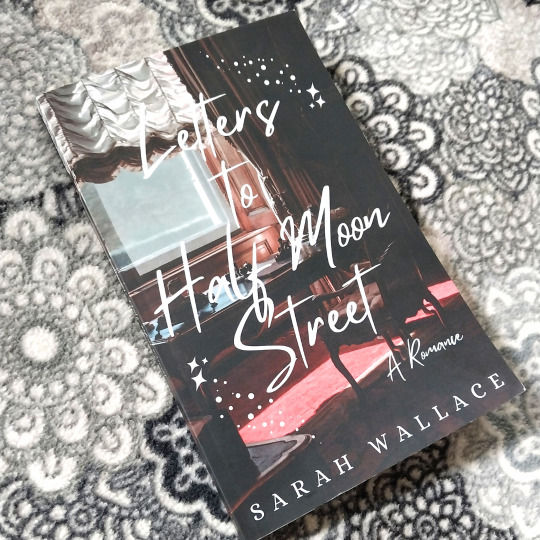
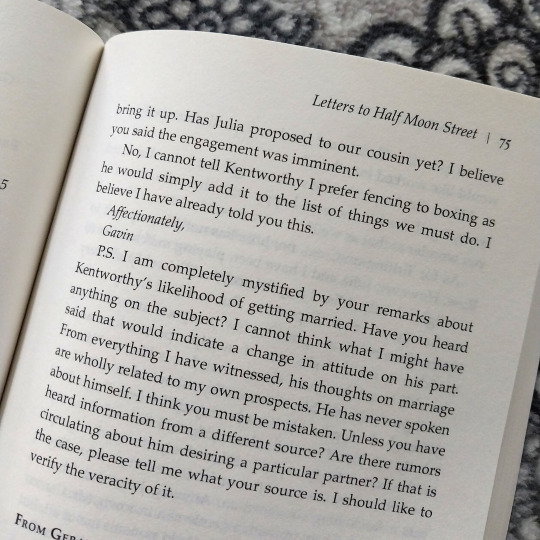



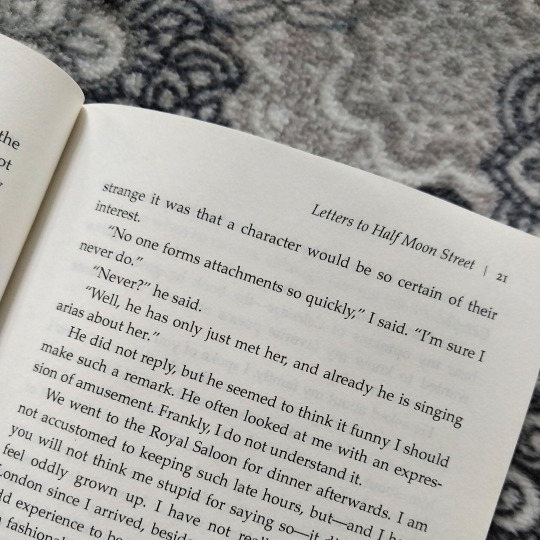
Letters to Half Moon Street by Sarah Wallace
Queer. Cozy. Comfort. Truly a book that puts the romance in romantasy. Reading this felt like sinking into a hot bubble bath. A wonderfully immersive experience with some delightful surprises.
For those who enjoy…
historical fantasy
queernormative worldbuilding
hurt/comfort
First in a series and I cannot wait to read the rest.
(Also, guess what? The ebook is permafree!)
#gay romance#historical romance#mm romance#mlm romance#queer romance#regency romance#historical fantasy#book review#romantasy#letters to half moon street#meddle and mend#sarah wallace
33 notes
·
View notes
Text
just finished divine rivals, speechless 🫶🏼
i made a full review in my goodreads!
https://www.goodreads.com/review/show/5701839071?type=review#rating_648553231
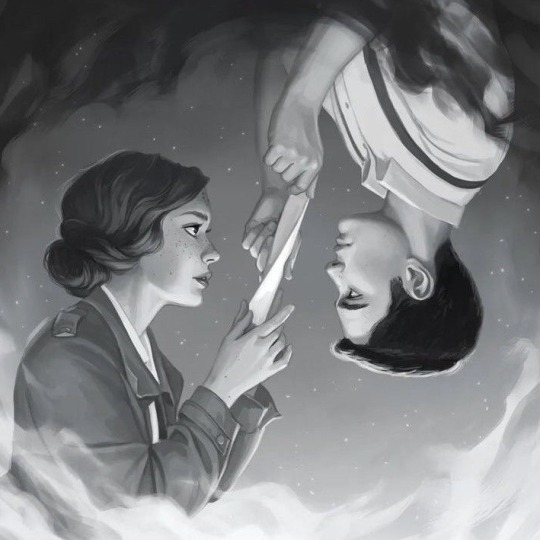




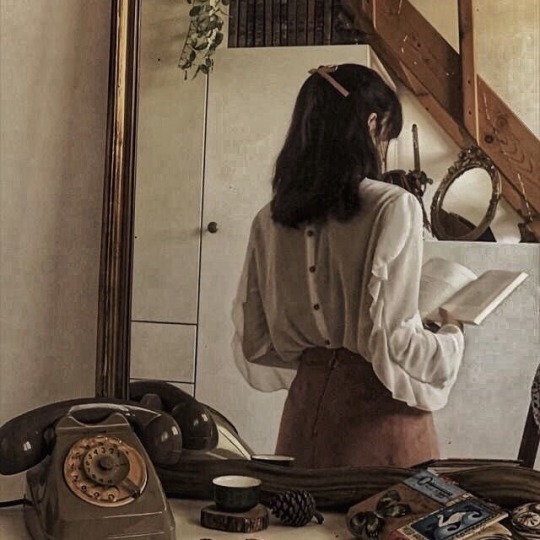
#divine rivals#rebecca ross#letters of enchantment#bibliophile#booklr#books & libraries#bookworm#books#book review#taylor swift#goodreads#reading#currently reading
132 notes
·
View notes
Text

To my manga, manhua, comic, webtoon readers out there, I IMPLORE YOU TO READ YOUR LETTER BY HYEON CHO 🤚🏽.
This is a BRILLIANT, ONE OF A KIND, HEART WRENCHING, HIGHLY RECOMMENDED story of school life and friendship 🤚🏽 thank you so much to the author for this wonderful story 🩷
Go get yourself a webtoon app now and read this. This will also be published in physical and digital form on July 23, 2024 by Ize Press, so get yourself a copy by preordering if you prefer to have your own physical copy ✨️
TW: bullying and illness
#your letter#webtoon#manhwa#bookish#book blog#booklr#booksbooksbooks#bookworm#book review#jlreadsreviews#bookrecommendation
16 notes
·
View notes
Text

love elizabeth s.
#original poem#original quote#love elizabeth s#writeblr#my poem#quotes#virginia woolf#poetry#short poem#sylvia plath#dark acadamia quotes#love poetry#dead poets society#love quotes#love quote#love poem#relationships#sad poem#in love#spilled ink#books#booklr#book lover#reading#dark academia quotes#poetry community#love letter#short poetry#book review#relationship quotes
86 notes
·
View notes
Text
September books review :

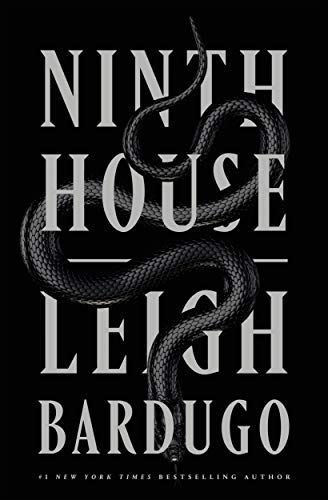

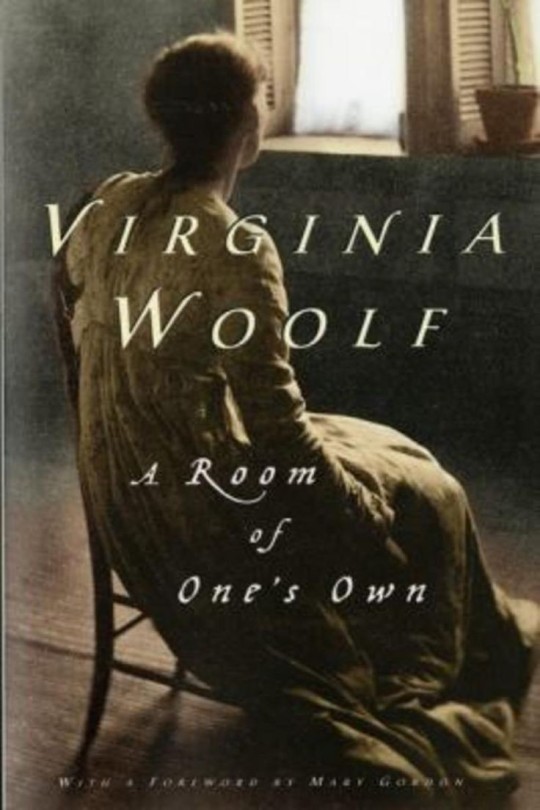
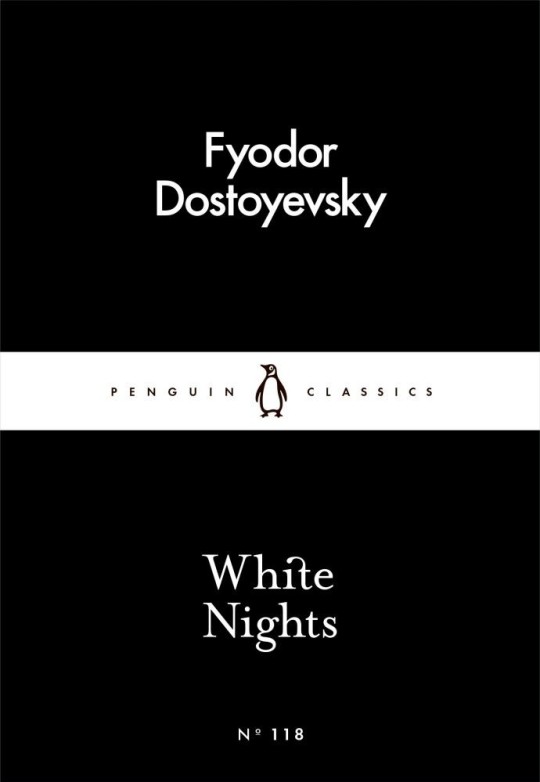
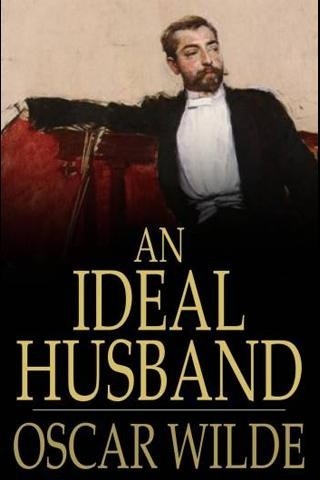
Ninth house ☆☆☆☆: Everything was great, from the characters to the plot.
The scarlett letter ☆☆: Not for me. The story is good but the writing style is terrible, it took me forever to finish.
Pride & prejudice ☆☆☆☆ : never thought I'd say this but i enjoyed the movie much better, it's still a great book though don't get me wrong, it's just i could've gone living without reading it. One of my least favorite jane austen books (controversial, i know)
A room of one's own ☆☆☆☆☆ : a book every woman should read in my opinion.
White nights ☆☆☆☆☆ : a short romantic novela. I think it's less of a love story and more of a depiction of lonliness. Finished it in a couple of hours.
An ideal husband ☆☆☆☆ : a comedic play by oscar wilde,short & easy to read, i enjoyed it.
#book#book reviews#books and reading#classic books#books and coffee#september books#classic academia#dark acadamia aesthetic#autumn#pride and prejudice#fyodor dostoevsky#dark academia#ninth house#a room of one's own#virginia woolf#oscar wilde#white nights#the scarlet letter#bookish#bookblr#books and libraries#book recs#booklover#monthly wrap up#literature#english literature#literature aesthetics#quotes#dark academic#dark academia books
84 notes
·
View notes
Text
Divine Rivals Book Review
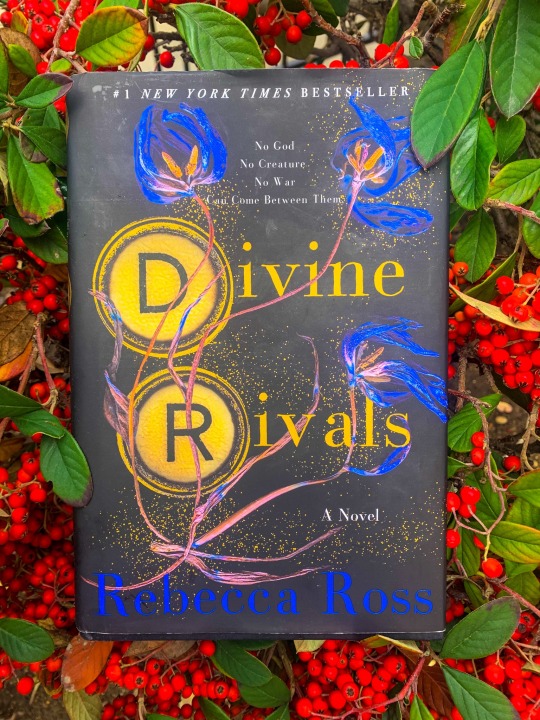
Divine Rivals Book Review by Rebecca Ross
I have a feeling this book review might be short and sweet (quite unusual for me).
Divine Rivals is one one of those books that I avoided reading because it had so much hype. It’s been topping the New York Times Bestseller’s List for weeks and I just…couldn’t believe that it was worth all the attention it was getting.
I was wrong, but in my defense, the last book I read with tons of praise and accolades was Fourth Wing and that book was certainly not worth the recognition in any way, shape, or form.
Divine Rivals, however, to my utmost surprise, was a super enjoyable read, probably one of the best that I’ve read in awhile.
My school librarian (I work at a high school) finally convinced me to read it as she flew all the way up to Washington to attend Rebecca Ross’ book signing and couldn’t stop singing its praises.
As a fellow YA reader inspired by her dedication, I finally bought Divine Rivals with lingering reluctance. Very quickly though, that reluctance turned into relief and then that relief transitioned into a rave review. That brings us to the present.
Divine Rivals is a true enemies-to-lovers. I feel like YA has been so over saturated with enemies-to-lovers lately, but they’ve all been subpar and disappointing.
The so-called “enemies” stage lasts all of five minutes before they immediately become lovers. Divine Rivals actually was a true enemies-to-lovers, and a good one at that.
Additionally, the main characters, Iris and Roman, don’t suddenly change their feelings for one another overnight. It’s a slow realization of coming to terms that the vitriol they felt for each other was always a razor’s edge away from love.
They’ve always had passion, always driven each other, and that is what makes the best enemies-to-lovers: the deliberate and almost imperceptible change of hating one another to loving one another and then realizing it’s not all that different in the end.
Speaking of Iris and Roman, I like them as characters. Were they the best, most amazing characters of all time? No. But they were genuinely good.
Iris is passionate, caring, and brave. Roman is dedicated, persistent, and loving. My only gripe is that I do think Iris and Roman are a little too perfect.
The worst thing Roman did was fall asleep while his little sister was sleeping, only to have her drown. While this is terrible, it was also an accident. It wasn’t actually anything intentional on Roman’s part.
I do think Iris has more moments of selfishness perhaps, especially when thinking about Forest and how she’s been left alone, but even then it’s very understandable and not even that bad to begin with.
They’re both almost unflinchingly brave, kind, and altruistic, which is quite bothersome, but in this case it’s not a huge gripe that I have.
Other than the actually good enemies-to-lovers story device, my other favorite part of the novel was the plot, which astonished me, especially considering that this is a war novel.
I don’t like war. It’s violent, brutal, and heart-wrenching. Thinking about it, I don’t believe I’ve actually read a YA novel centered around war before.
For that reason, I appreciated its uniqueness, especially in the sense that Roman and Iris were war correspondents and not soldiers.
I thought that was an interesting detail to include, one for the better as then we got to see the cruelty and ferocity of war, but it didn’t take up the entire book and we got to explore other avenues as well—like the support side of war, their life before the war, etc.
Iris looking for her missing-in-action older brother was a great plot point as well, one that really drove her character and fueled a lot of her actions. Roman’s motivations were a bit weaker, as the unwanted arranged marriage as a device is a bit overused in my opinion.
He essentially just followed Iris because he liked her, but it would have been good if he had other reasons to motivate him other than his feelings for Iris.
The other characters in the novel are fine and play their roles well. However, I will make the blanket statement that they don’t really matter in any significant way.
Marisol, Attie, any of the soldiers—they’re stock characters without too much development.
But that’s okay. While I would have liked a little more development of Attie’s and Iris’ friendship, the focus really is on Roman and Iris and I accept that.
One facet of the novel I really liked was the small, almost easy-to-forget casual moments of magic. Fantasy elements are present throughout the whole novel, but they’re small, curious tidbits instead of huge game-changing elements—until the very end at least.
For example, the whole war is between two gods. You get this backstory as a reader that there used to be hundreds of gods, but that humans banded together to kill them.
Eventually, only the most powerful gods remained until they were murdered as well, put to rest, and buried in graves…until now. Two gods, Enva and Dacre, have risen and are ranging war, gods with a twisted past and even more twisted feelings.
The backdrop of the war is unique and interesting, but never too heavy. You get some exposition here and there, the occasional myth that crops up, but that’s it.
I cannot state how much I appreciate Ross’ world-building here. It’s light, but intriguing. It molds the story, but doesn’t require massive amounts of chapters of mundane explanation.
It’s perfectly well-executed.
Even the magic part is interesting. It’s mentioned here and there that magic exists, but in small, unceremonious doses. An odd door here, an alley there, a magical typewriter—nothing huge, but instead these small details that just add to the world and make it special.
I have a feeling that we’re going to learn more about the gods, their backstory, and the magic system in the next book and I can’t wait.
One of the only things that downgraded this book for me was the ending. Spoiler alert for moving forward, as I will be discussing the conclusion in intricate detail.
It is beyond frustrating to me when authors take the whole book to finally get two characters together, two characters that they know their readers are rooting for and can’t wait to see, and then finally deliver it only to shatter it one second later.
For instance, it takes Roman and Iris nearly the whole book to come to terms with their feelings and be shaped by world events before they finally unite in holy matrimony (literally). It’s beautiful. As a reader you are overjoyed at finally having reached this point.
Then, through flimsy excuses, Ross separates the two almost immediately with the insinuation that Roman will turn into Dacre’s war puppet and they will once again have to fight to find each other and be together. It’s my guess that this will take the entire next book.
It is so baffling and aggravating to me when authors do this. We want to see Iris and Roman together. That’s why we’re reading. Let me see their relationship blossom. Just because they got married doesn’t mean the story is over.
Marriage is hard. Let me see them navigate this new stage of their relationship. That would be so interesting and just as complex.
When you separate them literally a few hours after they get married we get to see nothing.
What is the point?
You’ve undermined all the progress you’ve made throughout the whole book and now we’re back at square one.
Iris literally is back in Oath, her hometown, living in the apartment where she started, working a journalist’s job.
It is beyond excruciating to feel like the progress, feelings, and events of the first book are all but wiped away just so that Ross can have something to write about again?
I’ve said it before and I'll say it again: couples can get together and still be interesting. It’s not just about getting together, but staying together.
Urgh.
Up until the ending, I was so into this book. While the ending didn’t ruin things, it really annoyed me to know that we will now take the whole next book to find Romana and he probably won’t even be his full self.
I can see it all clearly laid out. If this is not the case, I will be pleasantly surprised, but I don’t count on it.
I didn’t even get into the bit of Iris not recognizing Roman and mistaking him for Forest, but I’ll leave at: it was stupid and not believable, even with circumstances presented.
In general, other than the ending, Divine Rivals is fantastic. The morsels of magic that leave you wanting more, the successful enemies-to-lovers with a payoff (until it’s immediately ripped away from you), the background of war and raging gods—it’s all sublime in the best way possible.
Recommendation: If it gives you any indication on how I felt about this book—I already started reading Ruthless Vows and I can’t wait to sink my teeth into it and devour it from beginning to end.
Score: 8/10 (would have been higher without the idiotic and cliched ending).
P.S. (Turns out my book review was not short and sweet. Whoops.)
#book blog#book review#book recommendations#ya fiction#book rec#popular fiction#books#popular books#top books#favorite books#divine rivals#rebecca ross#iris winnow#letters of enchantment#book thoughts#8/10
27 notes
·
View notes
Text


JUNE 2024 WRAP UP
[loved liked ok nope dnf bookclub*]
The Language of Thorns • Transitions: A Mother's Journey* • Sipsworth • The Watchmaker of Filigree Street • Sunbringer • Someone You Can Build a Nest In • The Curse of Chalion • The Adventures of Amina Al-Sirafi • Heartstopper Vol 5 • Knit One, Kill Two • A Letter to the Luminous Deep
Slim numbers this month! But we had a few days off of work, and a couple of these were long -
The Language of Thorns (4 stars) - I don't really enjoy Bardugo's work anymore, but this survived my very first TBR poll by my interference because I love fairy tales and retellings! I think Bardugo had some cool stories, made some cool twists, the illustrations were nice to look at - I think she definitly has the structure of fairy tales down, but I don't think she quite has the language. I don't love her writing style, but it really doesn’t fit here all of the time. I'm still trying to decide if I want to keep it, but I think I'm leaning towards not. I don’t own it, but I also plan to read the Hinterland collection by Melissa Albert.
Transitions (3 stars) a graphic novel based on the real-life experiences of a mother coming to terms with her child’s transition. I could maybe see this being a helpful book for someone whose parent is also struggling, but it was a bit too short and occasionally abstract for me to really understand the mother’s behavior - we definitely struggled to find anything to talk about at the bookclub meeting.
The Watchmaker of Filigree Street (3.5 stars) - I wanted to like this more. I definitely liked parts of it, most of it even! I just really hated the entire Grace subplot and it dragged the rest of the book down for me. Also, major deja vu at the ending? I don't know why, I can't remember reading this before. Will probably read the sequel and more of the author’s work, but I'd love to read KJ Charles’ version of this.
Sipsworth (4 stars) - it was fine? But I was also bored enough on occasion that this really should only be 3 stars, and I only finished it because it was short. Overly sentimental.
Sunbringer (5 stars) - fun! Really wish I could have picked this up right after book 1, it gets right into things and I’d forgotten a bit more than I liked. I didn’t realize that this series was set up to be more than just a duology, so news on book 3 soon I hope!!!
Someone You Can Build a Nest In (4.5 stars) - also very fun, would recommend to fans of fairy tales if you don’t mind some gore and body horror.
The Curse of Chalion (4 stars) - did I love this to the bottom of my heart? No. Did it hold my attention and keep me entirely engaged! Yes! So overall I’d call it a great read, and I really need to get the next book(s) on my reading schedule.
The Adventures of Amina al-Sirafi (5 stars) - WHAT a delight!!! Sailing ships, a reluctant hero, non-romantic relationships at the forefront, what’s not to love? I wish some of Amina’s friends had gotten a bit more development, but I also dearly love her and her terrible cringe-fail husband. While we wait for the next book I should go back and actually finish the author’s earlier series.
Heartstopper Vol 5 (5 stars) - also fun, and if I had more time I would have absolutely launched myself into a full Oseman read/reread (I wish her later novels had been released in the US when they first came out, but I’m glad we have them now!)
DNF


Knit One, Kill Two (4%) - the problem with cozy mysteries, especially with the slightly older ones, is that they tend to give strong vibes of having been written by women of a certain social class with certain views, and the writing just does not age well. Within 4% we got a conversation about dieting and calories and a tasteless comment about a homeless individual, and I was out.
A Letter to the Luminous Deep (31%) - this one’s been getting a lot of buzz, which, honestly, means it could have gone either way for me. It did not go, alas. The story was dragging, the back and fourth between timelines was frustrating, and the letters were not really convincing - if the siblings had set out to solve their siblings disappearance, maybe it would have had more pull, but it really felt like a lot of spilling your guts to a stranger and not much else. Too bad, because I do enjoy an unusual story structure if it works.
#bec posts#book log#wrap up 2024#books#booklr#bookblr#book review#book reviews#the language of thorns#Leigh Bardugo#transitions#sipsworth#the watchmaker of filigree street#Natasha pulley#sunbringer#someone you can build a nest in#the curse of Chalion#the adventures of Amina al-sirafi#heartstopper#knit one kill two#a letter to the luminous deep
12 notes
·
View notes
Text

✩🖋️✉️Series Review:
⋆ Historical romantasy
⋆ Rivals to lovers
⋆ Found family
⋆ Dual pov
You know those books that just speak to your heart and soul? The ones that are so good that you feel numb afterwards and think about them for days? “Divine Rivals” and “Ruthless Vows” are those books for me. From page one, Ross sucked me in with her lyrical prose and atmospheric writing. I hungrily devoured each line, immersing myself in her seamless world-building and the high stakes atmosphere. Iris and Roman’s love story was just the icing on the cake! Their development from rivals at the Oath Gazette to lovers desperately clinging to each other on the battlefield is well paced, emotion filled, beautifully done in every other respect. Watching the two fall in love over letter correspondence and in-person despite the war forcing them apart tugged my every heartstring. I cannot wait to devour Ross’ backlist and get my hands on her newest project once it has been released!
Cross-posted to: Instagram | Amazon | Goodreads | StoryGraph
#divine rivals#ruthless vows#letters of enchantment#iris at the front#iris winnow#roman kitt#thea attwood#tobias bexley#rebecca ross#found family#rivals to lovers#dual pov#slow burn#ya romance#historical fantasy#fantasy romance#romantasy#ya fantasy#ya romantasy#book recs#book review#booklr#book blog#book blogger#young adult fantasy#young adult romance
14 notes
·
View notes
Text
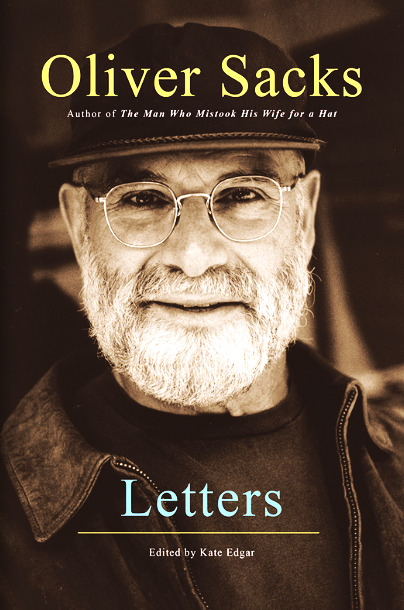
Letters by Oliver Sacks
The kaleidoscopic world and polymathic interests of a great neurologist brought to life in his correspondence
In 1960, Oliver Sacks, a 27-year-old University of Oxford graduate, arrived in San Francisco by Greyhound bus. Born in Cricklewood, London, Sacks spent the better part of his 20s training to be a doctor, but came to feel that English academic medicine was stifling and stratified. A “tight and tedious” professional ladder, he thought, was the only one available to aspiring neurologists like him.
A young queer man with a growing interest in motorcycle leather, Sacks had other reasons to leave. The revelation of his sexuality had caused a family rift: his mother felt it made him an “abomination”. And so he looked for escape across the Atlantic. America, for him, was the wide open west of Ansel Adams photographs; California was Steinbeck’s Cannery Row. The new world promised “space, freedom, interstices in which I could live and work”. This is how we meet Oliver Sacks in Letters: as an immigrant undertaking an internship at Mount Zion hospital, the first step in a career on US soil that would span another five decades.
Sacks’s San Francisco years also marked the beginning of his life as a writer. The city wasn’t an arbitrary choice. As he eagerly confessed to a one-time lover, Jenö Vincze, his true motivation for travelling to California was to force a meeting with an artistic idol, the British-turned-Haight Ashbury poet, Thom Gunn. Gunn’s The Sense of Movement (1957) spoke to and stirred Sacks’s predilection for motorbikes. Moreover, it performed on Sacks the kind of private miracle only poetry can: it helped decode “the babble” of his emotional life. “There is a queer, colossally big London Jew called Wolf,” Gunn wrote to his partner in 1961, after first meeting Sacks (who used his middle name, Wolf, as a nom de guerre when frequenting the city’s gay bars, wise to its lycanthropic resonances). “[He] came out to be a doctor here because I live here.” Sacks shared his writing with Gunn, whom he found a ruthless but tender critic, later crediting the poet with first impressing on him that he had real literary talent; a pivotal moment for a man who would go on to publish a dozen books.
“I am not a good correspondent,” Sacks wrote to his parents in 1961, “because I speak and write at people rather than to them.” This is an apt summation of Letters: 52 years of outgoing mail sent (or left unsent) to family, friends, scientists, writers and later, fans and celebrities, a panoply of addressees as diverse as the subjects Sacks writes “at” them about. Unleashed in a self-described “volcanic logorrhoea” that typifies his writing style, these letters variously consider botany, etymology, entomology, geology, neurology, and literature; the tussle between xenophobia and xeniality in Star Trek; the “phantasmagoric-comic unconscious” of actor Robin Williams. Edited by Kate Edgar, who worked as Sacks’s editorial assistant for over 20 years, Letters represents a mere fraction of the total in his archives, which runs to more than 200,000 pages.
Many of the included letters are incomplete, with ellipses denoting gaps whose editorial logic we must take on faith, even when they occasionally appear to interrupt tantalising trains of thought. In a 1984 letter to Lawrence Weschler, for instance, Sacks’s conflicted reflections on strike action in hospitals that might put vulnerable patients at risk feel prematurely curtailed. Despite these excisions, Letters leaves one with the overwhelming impression of a brilliant and vivid mind, a man whose intellectual appetite was vast, and whose professional and creative passions – far from being the self-absorbed obsessions of a pedant – were first and foremost an act of reaching out, the means through which he sought to communicate with others, a “love affair with the world”.
Sacks is an endearing and entertaining prose stylist – inquisitive, often funny, never obtuse – and the organisation of Letters, separated into broadly thematic, chronological chapters with concise editorial introductions, provides narrative momentum. The resulting book is far more engaging than the unwieldy reference text for Sacks specialists it could have been. It might, in fact, serve as a more affecting autobiography than his On the Move (2015), which occasionally slides into sentimentality. Letters is crammed with off-the-cuff profundities, moments of elevated perception that briefly unriddle the more inscrutable aspects of human nature. Here he is on grief, after the passing of his mother in 1972, an emotive state he deems “so unlike depression: it is so filling and real and expanding and uniting and – (it sounds an almost blasphemous word) – nourishing”.
Letters also draws an illuminating line from Sacks’s neurological career to his unlikely emergence as a bestselling author. In the late 60s, having relocated to New York, Sacks treated a group of patients suffering from encephalitis lethargica, also known as “sleeping sickness”, with an experimental drug, L-dopa. This experience informed his second book, Awakenings (1973), which married scientific research with storytelling through case studies of his patients’ lives and their responses to the treatment – a hybrid genre that irritated his colleagues just as it struck a chord with general readers. The literary attention Awakenings received set Sacks on a course to public renown.
“Brevity has never been a quality of mine,” he wrote to Mrs Miller, a physical therapist who helped him regain mobility after a leg injury in 1974. Indeed superabundance – the instinct toward excess – is everywhere in these letters. As a man of 30, dallying with powerlifting, Sacks routinely bragged to his parents about his weight, how much he could lift, the amount he ate – “I love to shake the pavement as I walk, to part crowds like the prow of a ship.” At Mount Zion, special scrubs had to be made to accommodate his bulk, and he found himself in disfavour with his superiors for stealing patients’ food.
But his overconsumption wasn’t always dietary. During the following 10 years or so, Sacks took a prodigious amount of amphetamines and psychotropics – “every dose an overdose” – with one trip producing visions of the “neurological heavens” so intense it inspired him to write his first book, Migraine (1970). By the 80s, following Awakenings and an appearance on The Dick Cavett Show that boosted his profile, pumping iron and popping pills had been replaced by correspondence. “I receive at least fifty or sixty letters and phone-calls a day,” he told his father with the same pride he formerly felt after squatting 575lb, “and, if anything, this number is increasing!”
What was Sacks trying to satiate? His substance abuse, the workaholism that eventually displaced it, speaks of the addict’s need to fill or stuff a void, an effort to forestall the unbearable loneliness that might accompany a moment’s rest. And loneliness certainly runs through these pages. Sacks once felt that his very existence was only made tolerable by rejecting intimacy and becoming “impersonal or supra-personal”; relationships, he said, were a forbidden area for him.
Late in life, he cited internalised homophobia as the driving force behind this isolation, a heart-rending admission, given that he temporarily felt liberated from this oppressive “social matrix” during that short-lived 1965 love affair with Jenö. It wasn’t until 2008, after 30-odd years’ celibacy, that an epistolary meet-cute with the writer Bill Hayes precipitated a loving, intimate companionship, one that would last the remainder of Sacks’s life. It’s a touching if bittersweet moment that arrives towards the end of Letters, the coda to this portrait of a man who, half a century earlier, had travelled across the world hoping to meet a poet who might truly understand him.
Daily inspiration. Discover more photos at Just for Books…?
7 notes
·
View notes